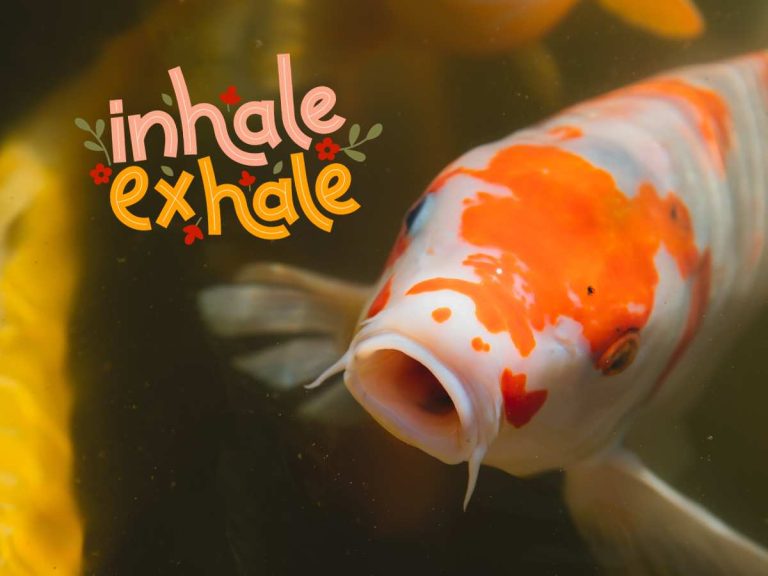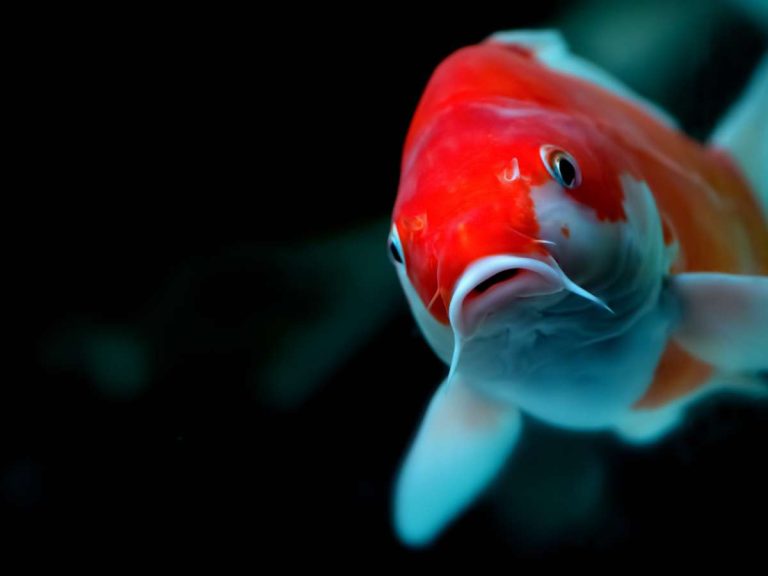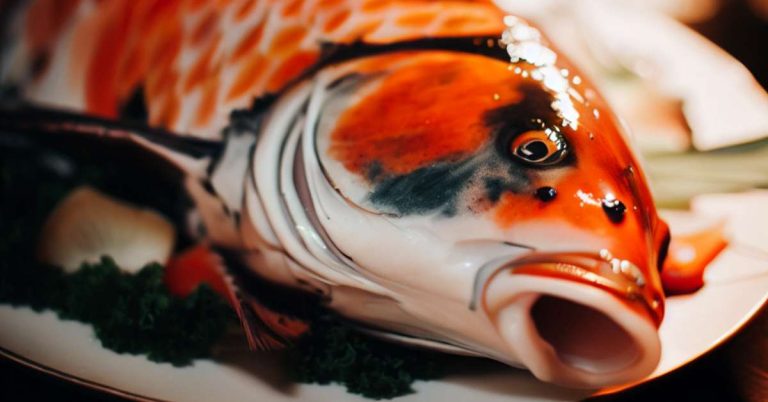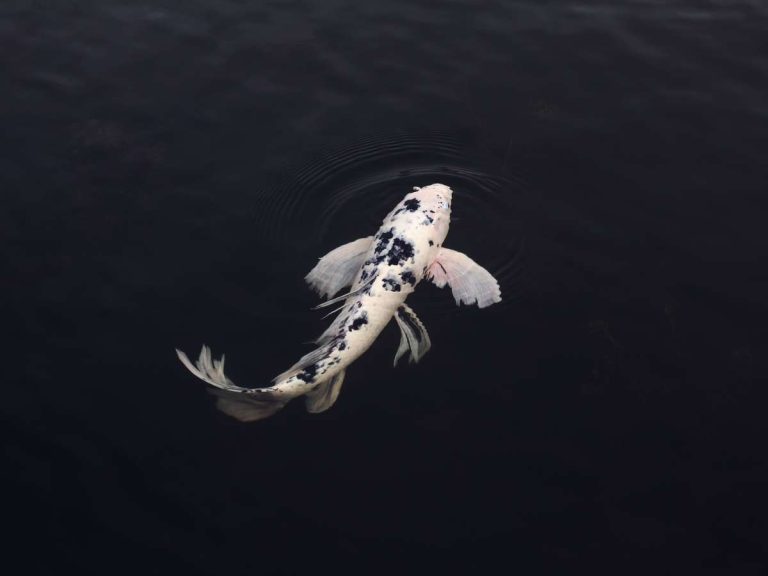Koi Fish Swimming Upside Down or Sideways: Causes & Solutions
If you’ve noticed your koi fish swimming upside down or sideways, you’re likely puzzled and maybe a little concerned. Why are they swimming funny?
A variety of factors can cause koi fish to swim upside down or sideways, including swim bladder disorders, digestive issues, spinal deformities, or bacterial and parasitic infections. You need to understand the underlying causes of this unusual behavior if you want to address it effectively.
By the end of this article, you’ll have a better understanding of this peculiar swimming pattern and be equipped with useful tips to help your koi fish swim happily and healthily! Stick around to learn more about koi swimming behavior!
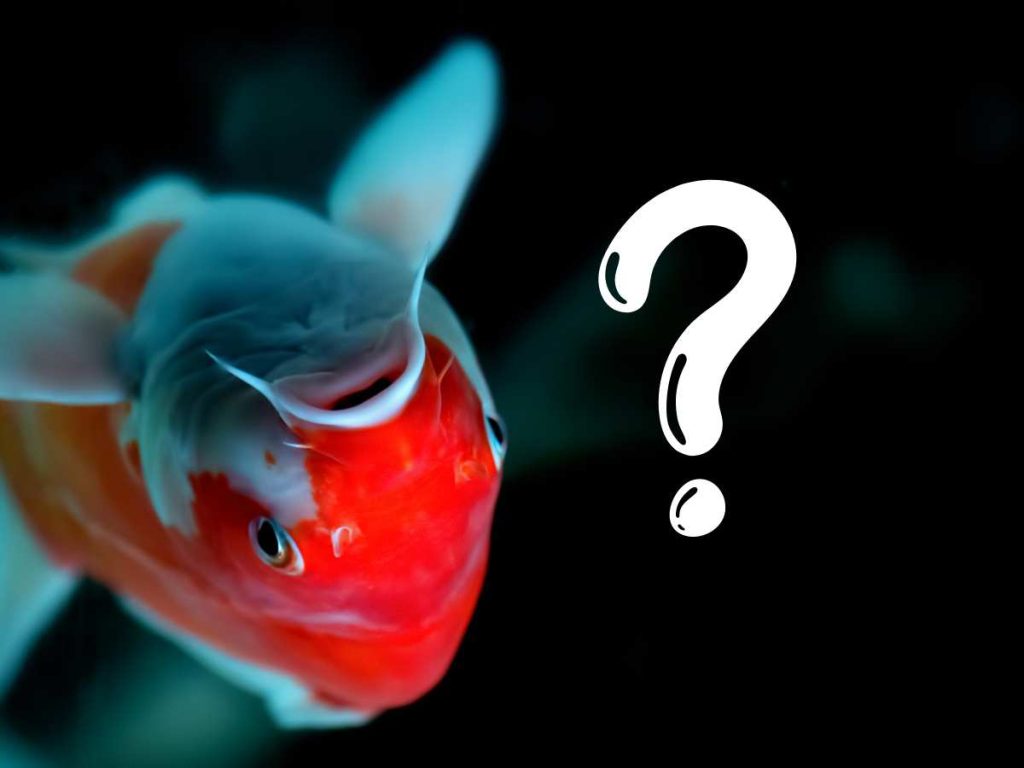
Understanding Koi Fish Swimming Behavior
Koi their own unique patterns of movement that can tell us a lot about their health and well-being. Understand typical koi behavior, and you’ll be in a better position to notice if and when things go awry.
Typically, koi fish exhibit a smooth and fluid swimming motion, moving through the water with ease and elegance. Their fins and tails move in perfect harmony, allowing them to navigate their environment effortlessly.
Meanwhile, certain things can disrupt theese usual swimming patterns – many of which should be addressed need to be addressed.
One such factor is water temperature. Koi fish are ectothermic, meaning their body temperature is regulated by their surroundings (i.e. they’re cold blooded). If the water temperature is too low or too high, it can affect their metabolism and overall swimming behavior.
| Factor | Description | Impact on Swimming |
|---|---|---|
| Water Temperature | Koi fish are ectothermic, so their body temperature is influenced by the water temperature. | If the water temperature is too low or too high, it can affect their metabolism and overall swimming behavior. |
| Water Quality | Koi fish are sensitive to changes in water pH, ammonia levels, and dissolved oxygen. | Poor water quality can lead to stress and discomfort, resulting in abnormal swimming behavior. Regular testing and maintenance are essential. |
| Stress and Anxiety | Koi can experience stress due to environmental changes, noise, or interactions with aggressive fish. | Stress can lead to erratic movements or hesitation in their fin and tail motions. |
Another crucial factor is water quality. Koi fish are highly sensitive to changes in water pH, ammonia levels, and dissolved oxygen. Poor water quality can cause stress and discomfort, leading to abnormal swimming behavior. It’s vital to regularly test and maintain proper water conditions in their pond or tank.
Finally, stress and anxiety can also have a significant impact on koi fish swimming. These sensitive creatures can experience stress due to environmental changes, noisy surroundings, or even interactions with other aggressive fish. Stress-induced swimming patterns may include erratic movements or hesitation in their fin and tail motions.
Ultimately, understanding these factors and their impact on koi swimming patterns can help in ensuring the well-being of these beautiful fish. Regular monitoring and maintenance of their environment are crucial to their health.
Why is my koi fish swimming sideways and upside down?
If your koi fish swim upside down or sideways, it’s likely that one of the following four issues are causing this behavior.
1. Swim bladder disorder
One common cause of koi fish swimming upside down is a swim bladder disorder. The swim bladder is an internal organ that helps fish maintain buoyancy and control their swimming depth. When the swim bladder malfunctions, it can disrupt the fish’s balance, causing them to swim in strange positions.
Some potential reasons for swim bladder disorders include overeating, gulping air at the water’s surface, or physical injuries.
If a koi fish is suffering from a swim bladder disorder, it may struggle to maintain a normal upright position in the water.
2. Digestive issues
Digestive problems can also lead to abnormal swimming behavior in koi fish. If a fish is experiencing constipation or other gastrointestinal issues, it may become bloated and have difficulty swimming properly.
Overfeeding or feeding improper food can contribute to digestive problems in koi fish. It’s important to provide a balanced diet and avoid overindulging them with treats or low-quality food that can disrupt their digestive system.
C. Spinal deformities
Spinal deformities can affect the swimming ability of koi fish and cause them to swim upside down or sideways. These deformities can be caused by genetic factors, poor water conditions, or injuries. When the spine is affected, it can result in abnormal swimming patterns and posture.
It’s crucial to maintain optimal water conditions to minimize the risk of spinal deformities in koi fish. Regular water testing and proper filtration can help create a healthy environment that promotes the fish’s overall well-being.
D. Bacterial or parasitic infections
Bacterial or parasitic infections can also lead to koi fish swimming upside down or sideways. These infections can affect the fish’s internal organs, including the swim bladder or digestive system, causing them to exhibit abnormal swimming behavior.
Water quality plays a significant role in preventing bacterial or parasitic infections. Ammonia and nitrite spikes can stress the fish and make them more susceptible to illnesses. Regular water changes and proper filtration are essential to promote a clean and healthy aquatic environment.
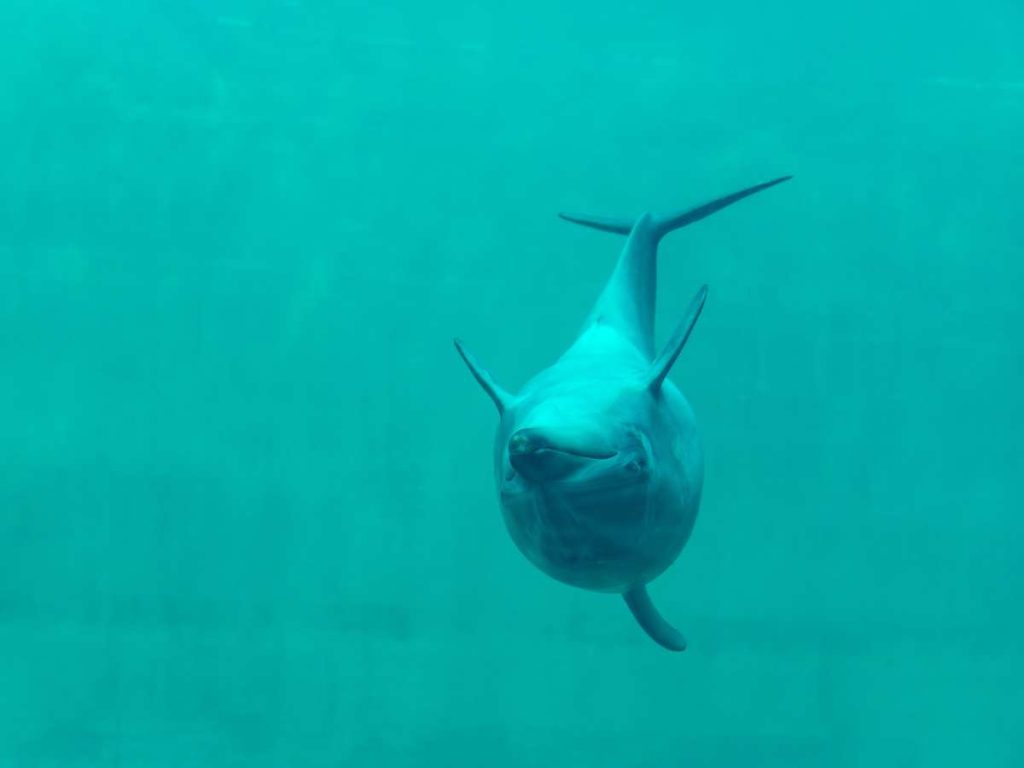
Solutions for Koi Fish Swimming Sideways
Now that we know about the possible causes of koi fish swimming upside down or sideways, let’s explore some solutions to help them get back on track. It’s important to remember that every fish is unique, so there may be some trial and error involved in finding the best solution for your specific situation.
First, you may need to adjust the water conditions in your backyard pond or koi tank, ensuring they’re actually (and still) optimal for koi fish. This includes maintaining proper pH levels, temperature, and oxygen levels. Regular testing of the water parameters can help identify any imbalances and allow for necessary adjustments.
Second, are you following proper feeding techniques?
Feeding koi fish a balanced diet is crucial for their overall health and well-being. Avoid overfeeding, as excess food can lead to digestive problems and swim bladder issues. It’s best to feed them smaller portions multiple times a day rather than one large meal. High-quality pellet or flake food specifically formulated for koi fish is recommended.
Note, too, that if your koi fish is suffering from swim bladder disorder or any other medical condition, it may be necessary to quarantine them in a separate tank for closer observation and treatment. Consult a veterinarian or fish expert to determine the appropriate medication or treatment plan for your fish.
Consult a veterinarian or fish expert
Ultimately, If your efforts to resolve the swimming issues on your own are not successful or if you are unsure about the underlying cause, it is always wise to seek professional assistance. A veterinarian or experienced fish expert can provide valuable insights and recommend specific actions tailored to your fish’s needs.
Complications of Koi Fish Swimming Upside Down
When koi fish start swimming upside down, it’s important to address the issue as soon as possible to prevent potential health complications. This abnormal swimming behavior is often a sign of an underlying health issue that needs attention. Equally alarming, swimming this way can start to have its own detrimental impact on their help.
One potential complication of swimming upside down is the strain it puts on the fish’s internal organs. This unnatural swimming position can disrupt the proper functioning of vital organs such as the digestive system and swim bladder. If left untreated, this can lead to further complications and even result in the fish’s death.
Upside-down swimming can also impact the overall well-being and longevity of koi fish. When they are unable to swim properly, it can cause significant physical stress. This stress weakens their immune system, making them more susceptible to diseases and infections. It can also lead to psychological stress, affecting their behavior and causing them to become less active or exhibit signs of distress.
Additionally, swimming upside down can interfere with the fish’s ability to feed properly. Since their mouth is not properly aligned with the surface of the water, they may have difficulty locating and consuming food. This can result in malnutrition and further health issues.
For all these reasons, you’ll need address the underlying cause of the upside-down swimming behavior in order to improve the health and well-being of the koi fish. Seeking professional assistance and proper medical treatment is essential in identifying and resolving the root cause of this abnormal swimming behavior. Only with timely intervention and appropriate care can the fish have a chance at a healthy and fulfilling life.
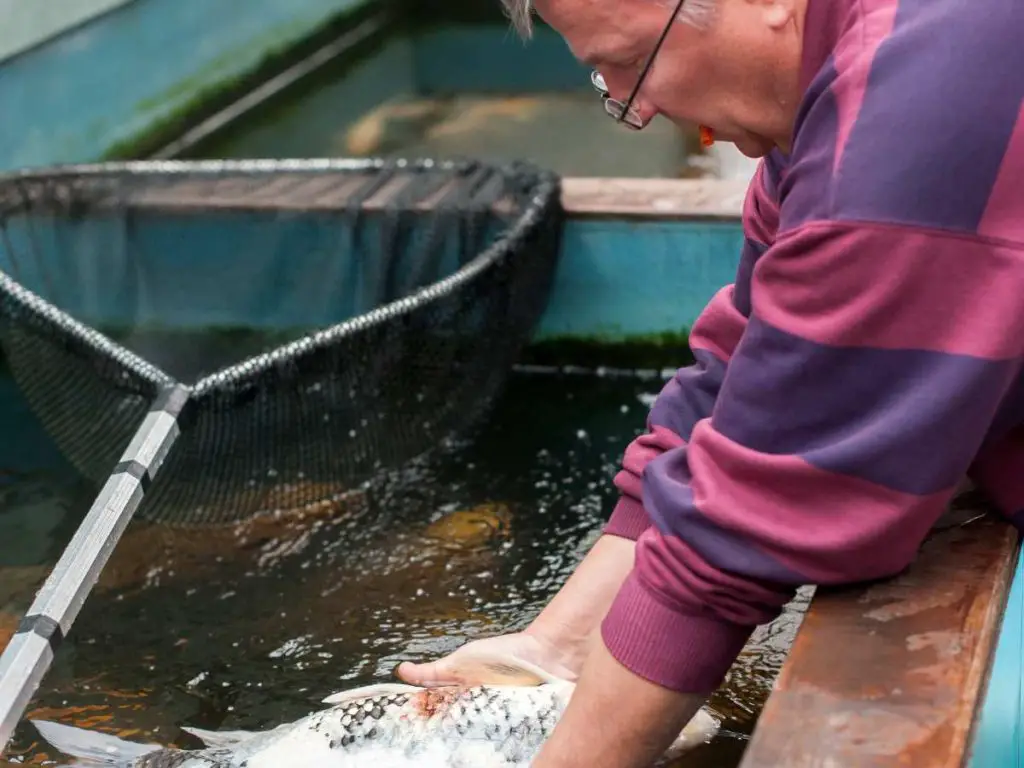
How to Prevent Koi Fish from Swimming Sideways
Maintaining optimal water conditions is crucial in preventing koi fish from swimming sideways. Start by regularly testing the water temperature and pH levels. Koi fish thrive best in water temperatures between 68 and 75 degrees Fahrenheit, so make sure to keep it in this range. Additionally, maintain a pH level between 7 and 8, which is ideal for these beautiful fish.
Another important aspect is providing a well-balanced diet. Koi fish are omnivorous, so their diet should consist of both high-quality pellets or flakes and fresh vegetables. You can even supplement their diet with treats like worms or shrimps occasionally. However, be cautious not to overfeed them, as excess food can lead to digestive issues and ultimately affect their swimming patterns.
Regular check-ups and preventive care are essential to keep your koi fish healthy. Make sure to visually inspect your fish for any signs of abnormal behavior or physical abnormalities. If you notice anything concerning, consult a veterinarian or an experienced fish expert who can provide proper guidance and assistance.
Table: Examples of a Balanced Koi Fish Diet
| Food Type | Examples | Frequency |
|---|---|---|
| Pellets or flakes | High-quality koi fish pellets or flakes | Daily |
| Fresh vegetables | Lettuce, spinach, peas | Once or twice a week |
| Treats | Worms, shrimps | Occasionally |
Other abnormal swimming behaviors of koi
Aside from swimming upside down or sideways, koi fish can display various other swimming problems that may indicate underlying health issues.
One common behavior is flashing or rubbing against objects. If you see your koi repeatedly brushing against rocks or plants, it could be a sign of skin irritation or the presence of parasites.
Another abnormal swimming behavior to watch out for is vertical swimming. This occurs when the fish swims in an upright position, with its head pointing upwards or downwards. Vertical swimming can be caused by swim bladder disorders, spinal deformities, or even neurological issues.
Lethargic swimming is yet another sign that something may be amiss with your koi fish. If you notice your fish swimming in a sluggish or slow manner, lacking their usual energy and enthusiasm, it could be due to various factors such as infections, stress, or poor water conditions.
I can’t stress it enough: you need to pay close attention to these abnormal swimming behaviors as they may provide valuable clues about the health of your koi fish. If you observe any of these behaviors in your fish, consult a veterinarian or a fish expert who can provide a proper diagnosis and suggest appropriate treatment.
Help Your Fish Swim Well
So, there you have it – a comprehensive understanding of why your koi fish may be swimming upside down or sideways. We explored the normal swimming behavior of these beautiful creatures and delved into various factors that can affect their swimming patterns. Swim bladder disorder, digestive issues, spinal deformities, and bacterial or parasitic infections were identified as potential causes for koi fish swimming upside down. On the other hand, adjustments in water conditions, proper feeding techniques, quarantine and medical treatments, as well as seeking professional advice, were presented as solutions for koi fish swimming sideways.
We also discussed the importance of recognizing potential health issues in koi fish swimming upside down, as they can lead to complications and impact the overall well-being and longevity of your fish. To prevent such problems, it is vital to maintain optimal water conditions, provide a balanced diet, and schedule regular check-ups and preventive care.
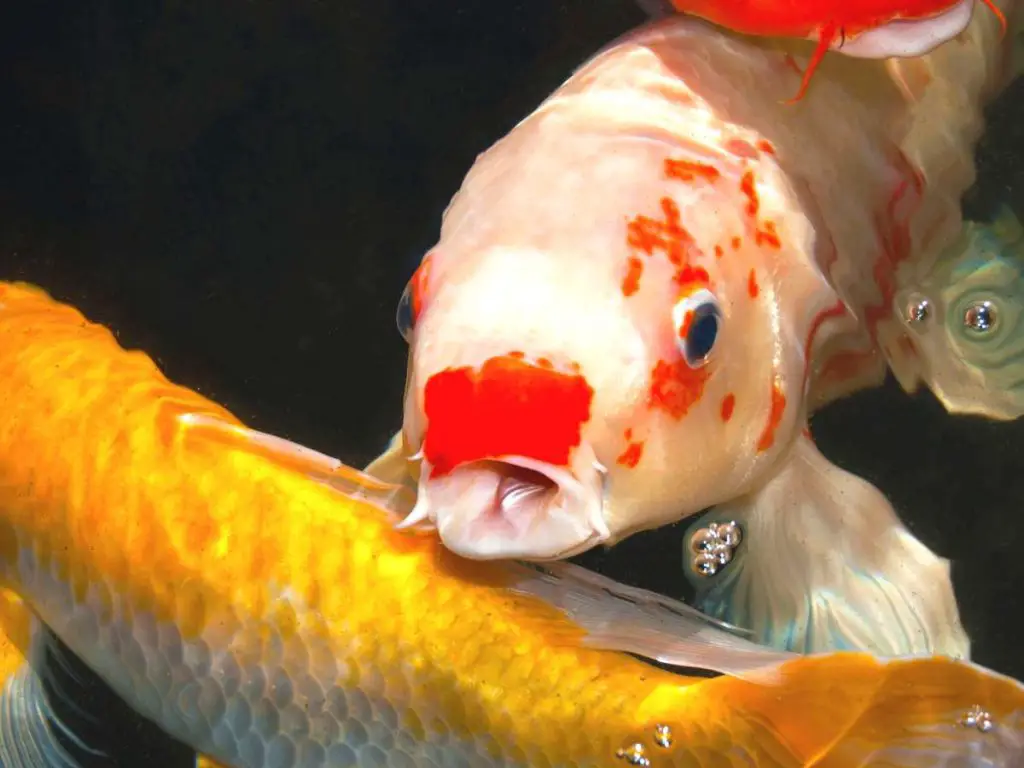
To quickly recap, here are the main facts covered in this article:
- Koi fish may swim upside down or sideways due to swim bladder disorder, digestive issues, spinal deformities, or bacterial/parasitic infections.
- Improper water conditions, feeding techniques, and stress can contribute to abnormal swimming patterns.
- Adjusting water conditions, implementing a balanced diet, and seeking professional assistance can help alleviate swimming problems.
- Health complications resulting from upside down swimming can impact the overall well-being and longevity of koi fish.
- Maintaining optimal water conditions, providing a balanced diet, and scheduling regular check-ups are crucial for preventing swimming issues.
By staying proactive in your care for koi fish and seeking the guidance of experts when necessary, you can ensure the continued health and happiness of these mesmerizing aquatic creatures. Happy backyard pond-keeping!
Related Questions
Can koi fish swim upside down due to overfeeding?
Yes, overfeeding can lead to swim bladder disorder in koi fish, which may cause them to swim upside down. It is important to feed them a balanced diet and avoid excessive feeding to prevent this issue.
Are there any natural remedies to help koi fish with swimming problems?
While there are no guarantees, some natural remedies that may help koi fish with swimming problems include adding aquarium salt to the water, maintaining proper water temperature, and providing a stress-free environment. However, it is essential to consult with a veterinarian or fish expert for proper diagnosis and treatment options for your specific situation.



